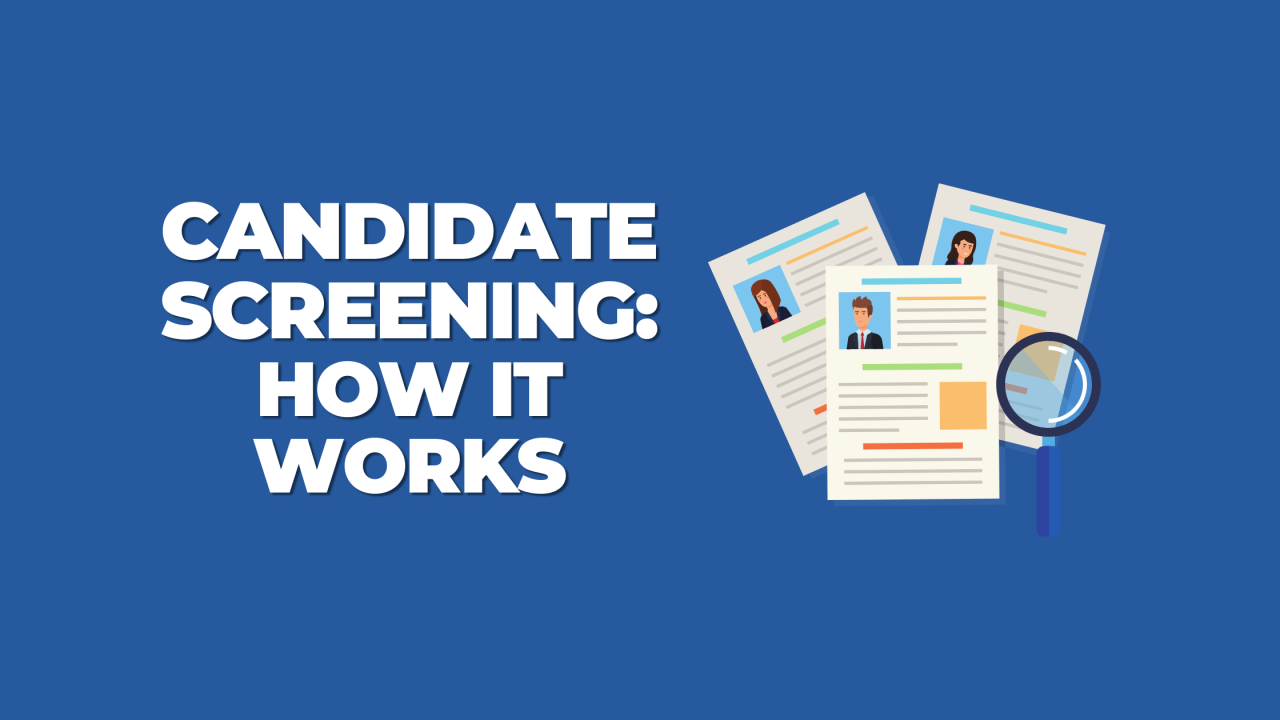The candidate screening process is an integral part of successful recruiting. The goal is to narrow down the pool of potential candidates and zero in on the best talent. An effective screening process adds tremendous and immediate value to the hiring process by evaluating and validating candidates to find the perfect fit. In this article, I want to share how the candidate screening process works and what it usually entails.
Understanding resumes
The screening process typically begins with the review of a candidate’s resume. Screening resumes streamlines the candidate selection process by focusing on the most qualified applicants. Evaluating resumes requires a thorough understanding of the job requirements and the role. This allows a recruiter to accurately assess if the credentials and experiences listed on the resume actually meet the requirements of the job description.
Your resume should effectively convey, at face value, why you’re the right person for the job. As a snapshot of your experience, skills, and qualifications, it would be best if the information in your resume is presented in a structured, logical order. To stand out, it shouldn’t only reflect your skills and experience but include specific accomplishments that can actually support your competencies.
Looking at career path
The career you’ve built is a reflection of your goals and values. A candidate with a strong career progression indicates high-quality work and excellent work ethic. Looking at a candidate’s career path is key to assessing whether the candidate’s career needs are well-aligned with the company’s needs. The role you’re pursuing should always facilitate the fulfillment of your career goals and satisfy the reasons behind your career move.
As a recruiter, I make it a point to know what makes candidates tick and what they want to achieve in their next role. I often ask what they like the most and what they least like about their job. The answers to these questions tend to provide insights into how candidates work, their motivations, and whether or not they’re a good fit for the company.
Evaluating Achievements
Excellent candidates don’t just rattle off a list of job responsibilities – they show what they achieved. To know more about a candidate’s accomplishments and reveal their competencies, I usually ask them to tell me about a project they’re most proud of.
Your biggest career accomplishment will make the clearest and strongest case for why you’d be a great hire. The answer you give says a lot about how you work and what you value the most. I look out for any mention of specific skills, strategies and other unique attributes that contributed to their accomplishment. This gives me a solid picture of how they will be able to use their skills once they settle into their next role. The discussion also provides useful insights into a candidate’s other desirable qualities such as leadership skills, communication skills, and problem-solving skills among others.
Citing strengths and areas of improvement
Asking about strengths in the workplace allows candidates to go into detail about what they’re particularly good at and how their skills can add value to the role and the company. How you choose to answer this question is crucial so give thoughtful, honest and genuine answers that will help the interviewer envision you at your best.
Citing your professional shortcomings is a good indicator of self-awareness and your capacity for learning. It also provides insights into how you approach inadequacies and how you intend to work on critical skills that you may currently lack.
Overall, candidate screening is an essential and indispensable step in ensuring the quality of the talent pool. An experienced recruiter can definitely bring a lot of value in this regard and will ultimately lead to a more effective and successful hiring process.






